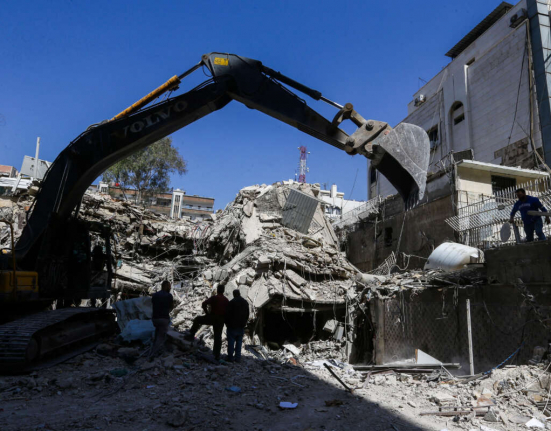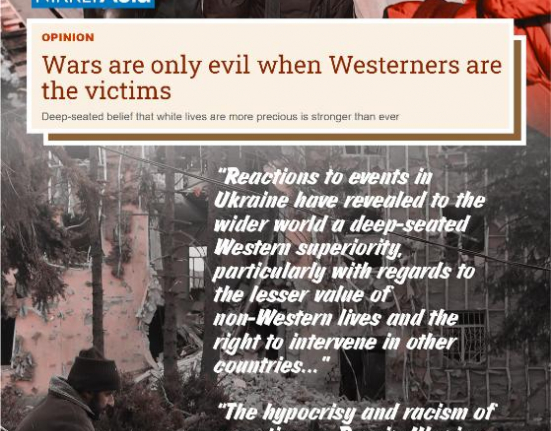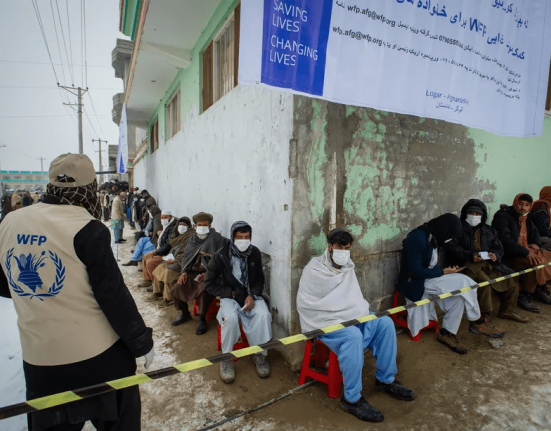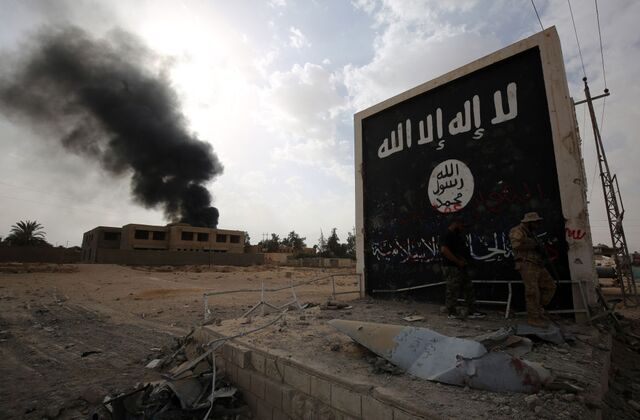
For the last twenty years, the leading narratives surrounding foreign intervention in Afghanistan have painted the country as a state-building project. Common buzzwords such as “nation-building”, “fighting terrorists” and “stabilizing” in Afghanistan have flooded headlines since the United States formally announced and initiated intervention in 2001. Yet no lasting state was built, nor was any peace or stability restored. With the plights of local populations often ignored by supposed ‘aiding’ countries, the only apparent result of the War in Afghanistan, or even the greater contemporary history of the country, was the profit of major players on the international stage, who strategically toyed with successive Afghan governments in order to secure the most profitable deals in this resource-rich geographic area.
Today, the situation of the Afghan people differs very little. In the context of the U.S. withdrawal from Afghanistan in 2021 and the consequent Taliban takeover, the dynamic between Afghanistan and its foreign counterparts has only become worse. Under Taliban rule, not only are minority populations further marginalized and subordinated, but the international community does little in way of support, often implicitly supporting this oppression through diplomatic relations and profitable business deals with the Taliban. Taking a closer look allows us to understand the scope and gravity of the daily injustices that take place, and the impact that international support has on the oppressor—or that it could potentially have on the oppressed.
Life Under Taliban Rule
Long story short, life under Taliban rule is not the same as before the collapse of the Afghan government. In the context of historically high levels of ethnic and sectarian hostility in Afghanistan, the Taliban in 2023 run an exclusionary Pashtun-centred system, under which they’ve carried out arbitrary arrests and executions on ethnic and religious grounds. Historically, the Hazara ethnic group have been targeted for practising the Shi’a sect of Islam; today, the Taliban rule the country with strict sectarian regulations that favour the Sunni population, thus marginalizing and often punishing members of the Shi’a population.
More recently, the Tajik ethnic group has also been disproportionately targeted. Tajiks, descendants of ancient Eastern Iranian inhabitants of Central Asia, are a historically Persian-speaking ethnic group that make up approximately 25 per cent of the population in Afghanistan. The Taliban are reportedly carrying out door-to-door questioning to seek out residents who do not speak Pashto, the language commonly spoken among ethnic Pashtuns. Those who did not were shot in the street. This type of discriminating conduct, particularly as it pertains to aspects of ethnic identity such as language, explicitly targets non-Pashtun ethnic groups and subjects them to violence (and often death) in a process comparable to ethnic cleansing.
It is important to note, however, that the Taliban operates differently based on regional affiliation. Kabul-based ‘bureaucrats’, for example, are more likely to uphold–at least on the surface–the promises they have made with regard to protecting human rights. However, in more remote regions, religious hardliners are more likely to get away with their own agendas, which include arbitrary arrests, killings, and also displacement of ethnic Hazaras and Tajiks in peripheral territories.
Diplomacy With Terrorists
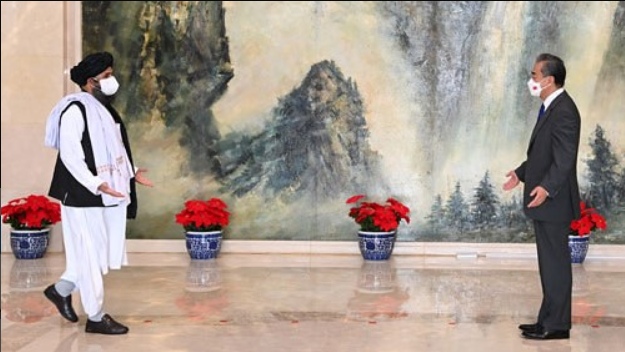
The Taliban’s diplomatic relations present a great-power competition that goes beyond the proxy war. “Taliban China”. Photo by Prachatai is licensed under CC BY-NC-ND 2.0.
Afghanistan is one of the richest mining regions of the world, with untapped resources valued at approximately $3 trillion. Rare earth elements essential to lithium batteries, computer chips, and other technologies have attracted geopolitical competition that will only intensify. As of March 2022, China had signed two agreements with the Taliban, one of which contained a 20 per cent stake agreement to extract oil. Back in 2017, while Trump spoke about the importance of withdrawing U.S. troops from Afghanistan, he also emphasized the priority of maintaining U.S. leverage in mineral extraction.
I spoke with an Afghan media executive now living in the United States to further understand this issue. The executive wished to remain anonymous, and explained:
“every regional player sees a stable Afghanistan ruled by the Taliban in their economic interest. Gone are the days of fighting proxy wars.”
Since their takeover of the Afghan government in 2021, the Taliban’s primary strategy to gain legitimacy in their new rule is diplomacy with other countries. Only one year into their rule, the Taliban had publicly announced 378 diplomatic meetings with at least 35 countries. While this may seem like a subtle gloat, it divulges the fact that despite not being recognized de jure, the Taliban are increasingly successful in being de facto recognized as terrorists-turned-heads-of-state. The Taliban has demonstrated to the world that they are open for diplomatic talks and, more importantly, profitable business deals with foreign governments and companies.
Consequently, there is a great-power competition angle on the current situation, which points to a good reason as to why powerful actors on the international level engage to such a significant degree in diplomacy talks with the Taliban. However, experts point to an overestimation on the part of the Taliban in assuming that winning official recognition is enough to boost their political legitimacy, especially when it comes to diplomatic recognition from the United States.
“Anyone who thinks the Biden administration will recognize the Taliban is clearly not following domestic American politics,” said the Afghan media executive. “The Biden administration was so badly damaged by the botched withdrawal from Afghanistan that it is hard to conceive it would contemplate any such step. […] That is not to say a rapprochement is inconceivable in the long run. The U.S. is no stranger to having friendly relations with despotic, unseeming regimes.”
Western Ignorance: Careless or Purposeful? And The Impact on Afghan People and Beyond
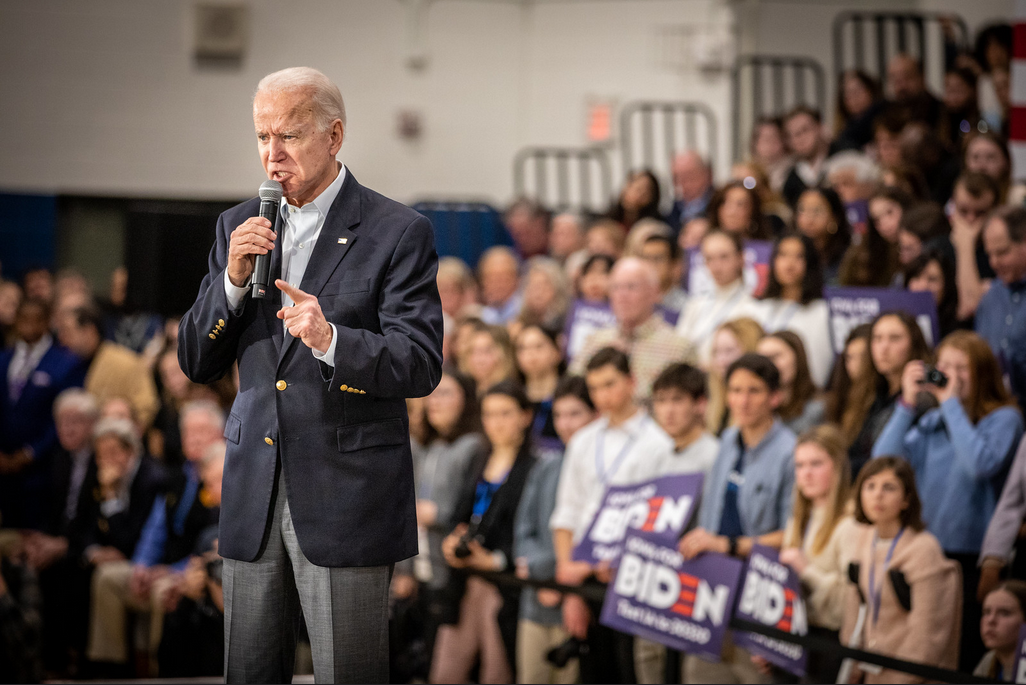
Biden’s “over-the-horizon” counter-terrorism strategies have pacified Americans, who don’t see terrorism as a top priority. “Joe Biden Rally at Hiatt Middle School”. Photo by Phil Roeder is licensed under CC BY 2.0.
Despite funding, publicity, and a moderate amount of support, Afghan resistance movements such as the National Resistance Front remain weak. Moreover, the international community is not providing much support either. The result is an Afghan people left vulnerable to the poor management of Taliban administration, including abuse and subordination along ethnic and sectarian lines, which are largely not addressed by international actors. But this raises an important question: does the international community really believe the blatant lies that the Taliban tells with regard to their new rule, or do they simply turn a blind eye to daily injustices that occur in order to profit from the leverage that comes with being in the Taliban’s good graces?
Regardless of whether it is the former or the latter, ignorance could be a grave mistake. The threat of the Taliban is not solely contained within the borders of Afghanistan, nor should it only burden the Afghan people. According to the United Nations, Afghanistan hosts a myriad of thriving organized crime and terrorist organizations that the Taliban cannot (or will not) solve. Labelled as a “breeding ground for terrorists,” Afghanistan under the Taliban remains close with Al-Qaeda and has explicitly stated its commitment to protecting its members and ensuring them an alarming level of freedom. Therefore, inaction on the part of Western governments not only perpetuates the dire situation of Afghan people, but at its extreme, could potentially open up the rest of the world to an acute terrorism threat. Despite U.S. President Biden’s commitment to preventing terrorism from brewing in Afghanistan and the consequent “over-the-horizon” counter-terrorism strategies — most notable of which killed Ayman al-Zawahiri in July of 2022 — terrorism is still a very real threat. Yet international terrorism is not a top priority for Americans.
“The reason is obvious,” the media executive said. “We haven’t had a major foreign-linked terror attack on U.S. soil in a while. […] Of course public attitudes toward terrorism could change the moment we have another major attack here.”
Despite the Taliban posing a very real threat to the Western world, it is crucial that we not only attribute importance to the situation because of how it could potentially affect Western democratic states and their populations. It is time for the West to portray Afghanistan not as a counter-terrorism nor a state-building project, but rather as a country that deserves to have basic peace and stability restored. It is crucial to emphasize the right of the Afghan people to own their own narrative as opposed to being labelled. It is also important to understand that this will not come through increased war and violence, as we have tried and failed to do continuously. Rather, Afghanistan needs a consistent and methodical action plan by the international community to restore societal balance, by addressing the plights of the Afghan people and ensuring, through diplomatic means, that terrorists are not legitimized as heads of state.
Source: The MCGILL International Review




